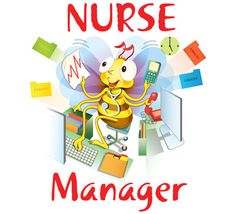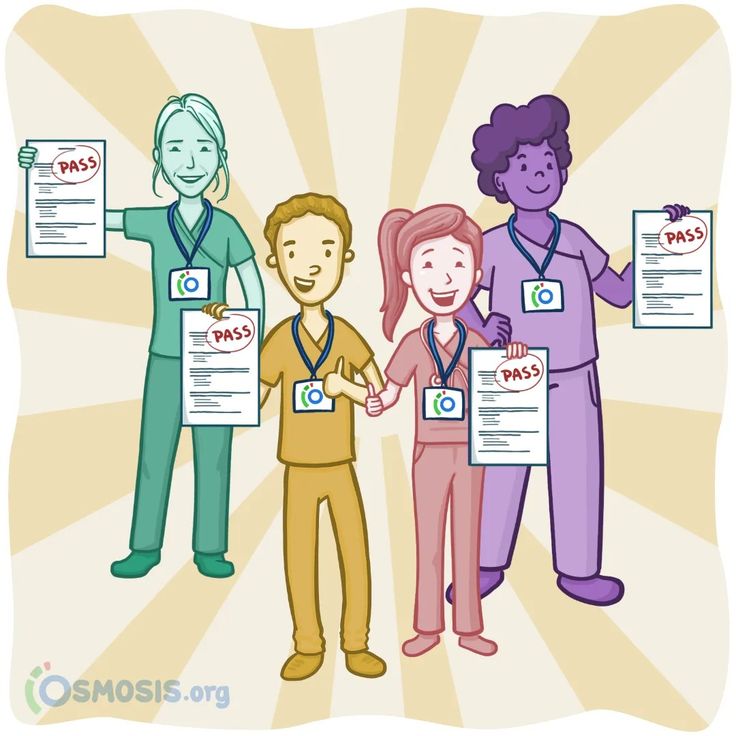
Table of Contents
NCLEX Mastery: Your Path to Success
The NCLEX RN exam stands as a pivotal milestone on the path to becoming a registered nurse. It’s not just a test; it’s the gateway to your dream career, a symbol of your dedication and hard work. Yet, this exam’s significance often brings a wave of challenges and anxieties. Many aspiring nurses face the pressures of high-stakes testing, uncertain how to navigate the vast content and unique format of the NCLEX-RN.
This guide empowers you with the tools and strategies needed for NCLEX Mastery. We’ll explore a comprehensive approach, covering effective study techniques, time management strategies, essential test-taking skills, and proven methods for overcoming test anxiety. Remember, you are not alone in this journey. With the right preparation, focused effort, and a confident mindset, success is well within your reach. This guide will equip you to pass the NCLEX-RN, excel, and embark on your nursing career with the knowledge and skills to provide safe and compassionate care.
Mastering the Content: Strategic Study Techniques for NCLEX Mastery
The path to NCLEX Mastery begins with a deep understanding of the exam and a commitment to effective study strategies. Here’s how to build a foundation for success:
A. Understanding the NCLEX-RN Exam: The Adaptive Challenge
The NCLEX-RN isn’t your typical exam. It’s a computer-adaptive test (CAT), which adjusts difficulty based on your responses in real time. This dynamic format ensures a personalized assessment of your nursing competency, tailoring itself to your individual performance.
- Exam Structure: No Set Number of Questions The test has no fixed number of questions. It has a minimum of 75 and a maximum of 265, providing a tailored experience based on your performance. You’ll have up to 6 hours to complete the exam, so time management is crucial.
- Question Types: Beyond Multiple Choice Be prepared for a variety of question formats designed to assess your understanding and critical thinking:
- Multiple choice: The most common type, requiring you to select the best answer from four options.
- Fill-in-the-blank: These require calculating values or input specific terms, demonstrating your understanding of formulas or precise knowledge.
- Select-all-that-apply: You’ll need to identify all correct answers from a list, with no partial credit given. This highlights the importance of thorough knowledge.
- Drag-and-drop/Ordered response: These assess your ability to prioritize actions or steps in a procedure, mimicking real-life nursing scenarios.
- Hot spot: You’ll identify the correct area on an image (e.g., anatomical location), testing your visual and spatial reasoning.
- Content Areas: A Broad Spectrum of Nursing Knowledge The NCLEX-RN covers a broad range of nursing content, reflecting the diverse nature of the profession:
- Safe and Effective Care Environment: This section covers topics like infection control, safety protocols, and legal/ethical considerations.
- Health Promotion and Maintenance: Expect questions about health education, disease prevention, and growth and development.
- Psychosocial Integrity: This section focuses on mental health, stress management, therapeutic communication, and cultural considerations.
- Physiological Integrity: This encompasses various medical-surgical conditions, pharmacology, and nursing interventions.
- Application over Memorization: Thinking Like a Nurse The exam focuses on applying nursing knowledge to clinical scenarios, not simply regurgitating facts. You’ll need to analyze information, make critical judgments, and prioritize actions, demonstrating your ability to “think like a nurse.”
B. Building a Solid Foundation: Revisiting the Fundamentals
- Review Nursing School Coursework: Start by revisiting the core concepts from your nursing program. Focus on foundational principles, nursing processes, and joint conditions. Refreshing this base knowledge is key.
- Self-Assessment: Identify Your Strengths and Weaknesses . Utilize practice questions early in your study process to identify your strengths and weaknesses. This targeted approach ensures you prioritize areas needing more attention, making your study time more efficient.
- Comprehensive Resources: Beyond Textbooks Utilize a variety of NCLEX-RN review books, online question banks, and study guides. These resources provide structured content review, practice questions, and answer rationales, reinforcing key concepts in different ways.
C. Active Learning Strategies for Retention: Engage Your Brain
Passive reading won’t lead to NCLEX Mastery. Engage with the material actively for better comprehension and retention:
- Concise Notes: Summarize key points in your own words, create flashcards for quick review, or build concept maps to visualize relationships between ideas. This process forces you to actively process and condense information, making it easier to recall.
- Mnemonic Devices: Use memory tricks like acronyms, rhymes, or visual imagery to remember complex information. These tools can be especially helpful for memorizing lists or sequences.
- Teach to Learn: Explaining concepts to others solidifies your understanding and can reveal any gaps in your knowledge. Study groups can be helpful for this, or even teaching the material to an imaginary audience.
- Spaced Repetition: Revisit material at increasing intervals to strengthen long-term memory. This technique helps combat the forgetting curve and ensures information stays fresh in your mind.
D. Practicing with Purpose: Simulate the Real Deal
Practice makes perfect, especially when it comes to the NCLEX-RN. Integrate these practices into your study routine:
- Practice Questions: Your Best Tool Familiarize yourself with the various question formats and identify knowledge gaps. A wide variety of practice questions are available in review books and online.
- Analyze Mistakes: Learning from Errors Don’t simply brush off wrong answers. Delve into the rationale behind the correct choices to understand why your answer was incorrect and adjust your thinking patterns. This is crucial for mastering the NCLEX’s focus on application.
- Timed Practice Tests: Build Stamina and Confidence Simulate exam conditions to build stamina, manage test-day anxiety, and refine your time management skills. Taking full-length practice tests under timed conditions helps you get used to the pressure of the actual exam.
By implementing these study strategies, you’ll not only master the content but also cultivate the critical thinking skills essential for NCLEX Mastery and your future as a confident and competent registered nurse.
Time Management: Your NCLEX Mastery Productivity Plan

Effective time management is not just about squeezing in more study hours; it’s about maximizing the impact of every minute you spend preparing for the NCLEX-RN. Think of it as your personal productivity plan for achieving NCLEX Mastery. Here’s how to make the most of your time:
A. Creating a Personalized Study Plan: Your Roadmap to Success
- Set Realistic Goals: Avoid the trap of setting overly ambitious goals that lead to discouragement. Instead, break down your NCLEX preparation into smaller, achievable milestones. What can you realistically accomplish each day or week? Set goals that challenge you but are still attainable.
- Break Down Study Material: The vast amount of NCLEX content can feel overwhelming. Divide it into manageable chunks, focusing on one topic or content area at a time. This approach makes the material less daunting and easier to absorb.
- Allocate Time Wisely: Everyone has different strengths and weaknesses. Assess yours through practice questions and allocate more study time to areas where you struggle while ensuring you cover all essential content.
- Build in Flexibility: Life is unpredictable, and unexpected events can disrupt even the best-laid study plans. Factor in some flexibility to accommodate these events without derailing your progress. This flexibility also helps prevent burnout by allowing you to adapt to changing circumstances.
B. Effective Time Management Techniques: Focus and Efficiency are Key
- Time Blocking: Treat your study sessions like important appointments by scheduling them into your calendar. This creates structure, reduces procrastination, and helps you stay committed to your study plan.
- Eliminate Distractions: Find a quiet study space and create a distraction-free environment. Turn off your phone, close unnecessary tabs on your computer, and let your family and friends know that you need focused study time.
- Time Management Apps: Utilize tools like planners, calendars, or time management apps to track your progress, set reminders for study sessions, and maintain accountability. These tools can also help you identify time-wasting activities and improve your focus.
- Break Down Large Tasks: Avoid feeling overwhelmed by breaking down large tasks into smaller, more manageable steps. This approach makes the overall goal of NCLEX Mastery seem less daunting and provides a sense of accomplishment as you complete each step.
C. Maintaining a Balanced Lifestyle: Recharge Your Mind and Body
- Prioritize Sleep, Exercise, and Healthy Eating: These factors are crucial for supporting your cognitive function, energy levels, and ability to focus during study sessions. A healthy body supports a healthy mind, making you a more effective learner.
- Schedule Breaks: Regular breaks during study sessions help prevent mental fatigue and improve retention. Step away from the material to clear your head, stretch, or take a short walk. A refreshed mind absorbs information more easily.
- Leisure Activities: Make time for enjoyable activities that help you relax, recharge, and prevent burnout. Spending time with loved ones, pursuing hobbies, or simply unwinding can significantly reduce stress and improve your overall well-being.
- Seek Support: Don’t hesitate to reach out to friends, family, or study groups for encouragement and support. Sharing your experiences and challenges can make the journey to NCLEX Mastery feel less overwhelming.
By applying these time management strategies, you can create a structured, efficient, and balanced study plan that supports your overall well-being as you work towards achieving NCLEX Mastery and launching your successful nursing career.
Mastering Test-Taking Strategies for NCLEX Mastery
While mastering content is crucial, NCLEX success also relies on honing effective test-taking strategies. This is about approaching the exam with a strategic mindset, deciphering questions accurately, and applying critical thinking skills to choose the best answers. Here’s how to refine your test-taking prowess for NCLEX Mastery:
A. Understanding the NCLEX-RN Question Format: Deconstructing the Puzzle
- Deconstruct the Question Stem: Don’t rush into answer choices. Carefully analyze the question stem, identifying key words that reveal what the question is truly asking. This step is crucial for avoiding misinterpretation.
- Recognize Distractors: The NCLEX-RN is known for its tricky distractors – answer choices that seem plausible but are ultimately incorrect. Be wary of answers that are partially correct or focus on irrelevant details.
- Focus on the Client: Many questions present clinical scenarios. Always prioritize the client’s needs and safety, choosing answers that align with best practices and ethical nursing care.
B. Effective Reading and Comprehension Techniques: Decode the Clues
- Read Carefully: Thorough reading is essential. Don’t skim questions or jump to conclusions. Read each question completely before even glancing at the answer choices.
- Identify Keywords: Look for keywords or phrases that provide clues about the correct answer. These might relate to timeframes (e.g., “immediately after surgery”), specific client needs, or priority actions.
- Rephrase Questions: If a question seems confusing, try rephrasing it in your own words to ensure you fully understand what’s being asked. This can help clarify the underlying concept.
C. Critical Thinking and Clinical Reasoning Skills: Think Like a Nurse
- Apply Nursing Knowledge: The NCLEX-RN is all about application, not rote memorization. Use your nursing knowledge to analyze clinical scenarios, identify relevant information, and make sound judgments.
- Prioritize Actions: Many questions require you to prioritize nursing actions or interventions. Draw on your understanding of nursing principles and best practices to determine the most appropriate course of action.
- Utilize the Nursing Process: The nursing process (Assessment, Diagnosis, Planning, Implementation, Evaluation) is a valuable framework for decision-making in NCLEX questions. Consider each step of the process as you analyze scenarios and select answers.
D. Strategic Elimination and Guessing Techniques: Making Informed Choices
- Eliminate Obvious Distractors: If you can confidently rule out some answer choices, you increase your chances of selecting the correct answer, even if you’re unsure.
- Look for Similar Answers: Answer choices that are very similar often indicate a distractor. Focus on the subtle differences between options to identify the most accurate choice.
- Educated Guesses: If you’re completely unsure of the answer, don’t panic. Use your nursing knowledge and intuition to make an educated guess. Eliminate unlikely options and choose the answer that aligns most closely with your understanding of safe and effective nursing care.
By mastering these test-taking strategies, you’ll be better equipped to navigate the NCLEX-RN with confidence, analyze questions effectively, and make informed decisions that reflect your NCLEX Mastery and your readiness for the nursing profession.
Overcoming Test Anxiety: Your Guide to NCLEX Mastery with Confidence and Calm
Test anxiety is a common experience, especially when facing a high-stakes exam like the NCLEX-RN. It can hinder your performance and erode your confidence. But don’t let anxiety control your NCLEX Mastery journey. By understanding anxiety and implementing practical strategies, you can achieve a calm and focused mindset, empowering yourself to perform your best.
A. Understanding Test Anxiety: Know Your Enemy
- Psychological Effects: Anxiety can manifest as racing thoughts, difficulty concentrating, fear of failure, and feelings of being overwhelmed. Recognizing these mental hurdles is the first step to overcoming them.
- Physiological Effects: Anxiety also impacts your body. You might experience increased heart rate, sweating, muscle tension, or nausea. These physical sensations can further fuel your anxiety, creating a vicious cycle.
- Identify Your Triggers: What specifically triggers your test anxiety? Is it the pressure of the exam, the fear of the unknown, or past negative experiences with tests? Pinpointing your triggers allows you to develop targeted coping mechanisms.
B. Relaxation and Stress Reduction Techniques: Calming the Storm
- Deep Breathing Exercises: When anxiety strikes, your breath becomes shallow and rapid. Practice deep, diaphragmatic breathing to slow your heart rate, reduce tension, and regain control.
- Mindfulness Meditation: Mindfulness encourages you to focus on the moment without judgment. Regular meditation can help you manage stress, reduce overthinking, and cultivate inner peace.
- Progressive Muscle Relaxation: This technique involves systematically tensing and releasing different muscle groups to alleviate physical tension and promote relaxation.
- Physical Activity, Music, and Nature: Engage in activities you enjoy to de-stress. Physical exercise, calming music, or natural time can help clear your mind and reduce anxiety.
C. Cognitive Reframing and Positive Self-Talk: Changing Your Narrative
- Challenge Negative Thoughts: Anxiety often feeds on negative self-talk. When you think, “I’m going to fail” or “I’m not good enough,” challenge those thoughts. Are they based on facts or fear?
- Positive Affirmations: Replace negative self-talk with positive affirmations. Remind yourself of your strengths, accomplishments, and ability to succeed. Tell yourself, “I am prepared,” “I am capable,” and “I will achieve my goals.”
- Visualize Success: Imagine yourself confidently taking the NCLEX-RN and succeeding. Visualization techniques can help reduce anxiety by creating a positive image of the exam experience.
D. Seeking Professional Support: When Anxiety Feels Overwhelming
- Therapy or Counseling: If test anxiety significantly interferes with your daily life or study routine, seek professional support from a therapist or counsellor. They can provide personalized strategies, coping mechanisms, and support to help you manage your anxiety effectively.
- Support Groups: Joining support groups or online forums allows you to connect with others who understand what you’re going through. Sharing experiences and strategies can provide valuable support and encouragement.
Remember, test anxiety is a shared experience, but it doesn’t have to control your NCLEX Mastery journey. By implementing these strategies, you can cultivate a calm, confident mindset and empower yourself to succeed on the NCLEX-RN, taking a significant step towards your dream nursing career.
NCLEX Mastery: Exam Day Strategies for Success

Exam day is the culmination of your NCLEX Mastery journey. All your preparation has led to this moment. Here’s how to maximize your performance and maintain a calm, focused mindset:
A. Practical Tips for Exam Day:
- Plan Logistics: Eliminate any potential stress by planning your transportation, parking, and arrival time . Arrive at the testing centre early to avoid rushing.
- Pack Essentials: Ensure you have your admission ticket, a valid form of identification, and simple snacks and water to keep you energized and hydrated throughout the exam.
- Rest and Nourishment: Prioritize a good night’s sleep before the exam and fuel your brain with a nutritious breakfast.
B. During the Exam: Stay Focused and Confident
- Time Management: Pace yourself throughout the exam, using the allotted time wisely. Don’t get bogged down on any single question. If you’re unsure, flag it and move on.
- Take Breaks: If you feel overwhelmed or mentally fatigued, don’t hesitate to take short breaks. Step away from the computer, stretch, breathe deeply, and clear your mind before returning to the exam.
- Positive Self-Talk: Maintain a positive internal dialogue. Remind yourself of your preparation and your ability to succeed.
C. After the Exam: Celebrate Your Achievement
- Milestone Accomplished: Recognize that completing the NCLEX-RN is significant, regardless of the outcome. You’ve dedicated time and effort to pursuing your nursing goals.
- Self-Care: Engage in activities that help you de-stress and unwind after the exam. You deserve it!
- Reflect and Grow: Take time to reflect on the experience, identifying any areas for future growth. This can be valuable for future exams or your overall learning journey.
No matter the outcome, you’ve demonstrated dedication and perseverance. Now, embrace the next chapter in your nursing journey.
Embrace the Challenge: NCLEX Mastery Awaits You
Your NCLEX Mastery journey requires a holistic approach dedicated study, strategic time management, and a resilient mindset. Remember, you’ve already overcome so much to reach this point. Embrace the challenge with confidence and perseverance. For extra support, utilize Phdnursewriter to navigate nursing school hurdles. You’ve got this! Best of luck on your NCLEX-RN journey a successful nursing career awaits you!





